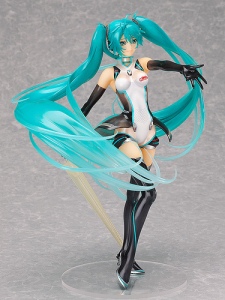We are repeatedly warned against the immoral woman's house. There is no vice like immorality, to delude with the most fascinating offers of delight — and fulfill the promise with the most loathsome experience. All vices at the beginning, are silver-tongued — but none so impassioned as this. All vices in the end, cheat their dupes — but none with such overwhelming disaster as immorality. I shall describe by an allegory . . .
its specious seductions;
its plausible promises;its apparent innocence; its delusive safety; its deceptive joys — their change, their sting, their flight, their misery;
and the victim's ruin!
its specious seductions;
its plausible promises;its apparent innocence; its delusive safety; its deceptive joys — their change, their sting, their flight, their misery;
and the victim's ruin!
HER HOUSE has been cunningly planned by an Evil Architect to attract and please the attention. It stands in a vast garden full of enchanting objects. It shines in glowing colors, and seems full of happiness and full of pleasure. All the signs are of unbounded enjoyment — safe, if not innocent. Though every beam is rotten, and the house is the house of death, and in it are all the vicissitudes of infernal misery; yet to the young, it appears like a palace of delight. They will not believe that death and damnation can lurk behind so brilliant a fabric. Those who are within, look out and pine to return; and those who are without, look in and pine to enter. Such is the mastery of deluding sin.
That part of the garden which borders on the highway of innocence, is carefully planted. There is not a poison-weed, nor thorn, nor thistle there. Ten thousand flowers bloom, and waft a thousand fragrances. A victim cautiously inspects it; but it has been too carefully patterned upon innocency, to be easily detected. This outer garden is innocent — innocence is the lure to wile you from the right path, into her grounds — innocence is the bait of that trap by which she has secured all her victims.
At the gate stands a lovely porter, welcoming kindly: "Whoever is simple, let him turn in here!" Will the youth enter? Will he seek her house? To himself he says, "I will enter only to see the garden — its fruits, its flowers, its birds, its arbors, its warbling fountains!" He is resolved in virtue. He seeks wisdom, not sinful pleasure! — Dupe! you are deceived already! And this is your first lesson of wisdom.
He passes, and the porter leers behind him! He is within an Enchanter's garden! Can he not now return, if he wishes? — he will not wish to return, until it is too late. He ranges the outer garden near to the highway, thinking as he walks: "How foolishly have I been alarmed at pious lies about this beautiful place! I heard it was Hell — I find it is Paradise!"
Emboldened by the innocency of his first steps, he explores the garden further from the road. The flowers grow richer; their fragrances exhilarate; the very fruit breathes perfume like flowers; and birds seem intoxicated with delight among the fragrant shrubs and loaded trees. Soft and silvery music steals along the air. "Are angels singing? — Oh! fool that I was, to fear this place — it is all the Heaven I need! Ridiculous minister, to tell me that death was here — where all is beauty, fragrance, and melody! Surely, death never lurked in so gorgeous apparel as this! Death is grim and hideous!"
He has now come near to the immoral woman's house. If it was beautiful from afar — it is celestial now; for his eyes are bewitched with magic. When our passions enchant us — how beautiful is the way to death! In every window are sights of pleasure; from every opening, issue sounds of joy — the lute, the harp, bounding feet, and echoing laughter. Nymphs have spotted this pilgrim of temptation — they smile and beckon him. Where are his resolutions now? This is the virtuous youth who came only to observe! He has already seen too much! But he will see more; he will taste, feel, regret, weep, wail, and die!
The most beautiful nymph that eye ever rested on, approaches with decent guise and modest gestures, to give him hospitable welcome. For a moment he recalls his home, his mother, his sister-circle; but they seem far-away, dim, powerless! Into his ear, the beautiful herald pours the sweetest sounds of love: "You are welcome here, and worthy! You have great wisdom, to break the bounds of superstition, and to seek these grounds where summer never ceases, and sorrow never comes! Hail! and welcome to the House of Pleasure!"
There seemed to be a response to these words — the house, the trees, and the very air, seemed to echo, "Hail! and welcome!" In the stillness which followed, had the victim been less intoxicated, he might have heard a clear and solemn voice which seemed to fall straight down from Heaven: "Do not come near the door of her house. Her house is the way to Hell, going down to the chambers of death!"
It is too late! He has gone in — and shall never return. He goes after her immediately, as an ox goes to the slaughter; or as a fool to the correction of the stocks — and knows not that it is for his life!
Enter with me, in imagination, the immoral woman's house — where, God grant you may never enter in any other way. There are five rooms — Pleasure, Satiety, Reality, Disease, and Damnation.
By Henry Beecher



